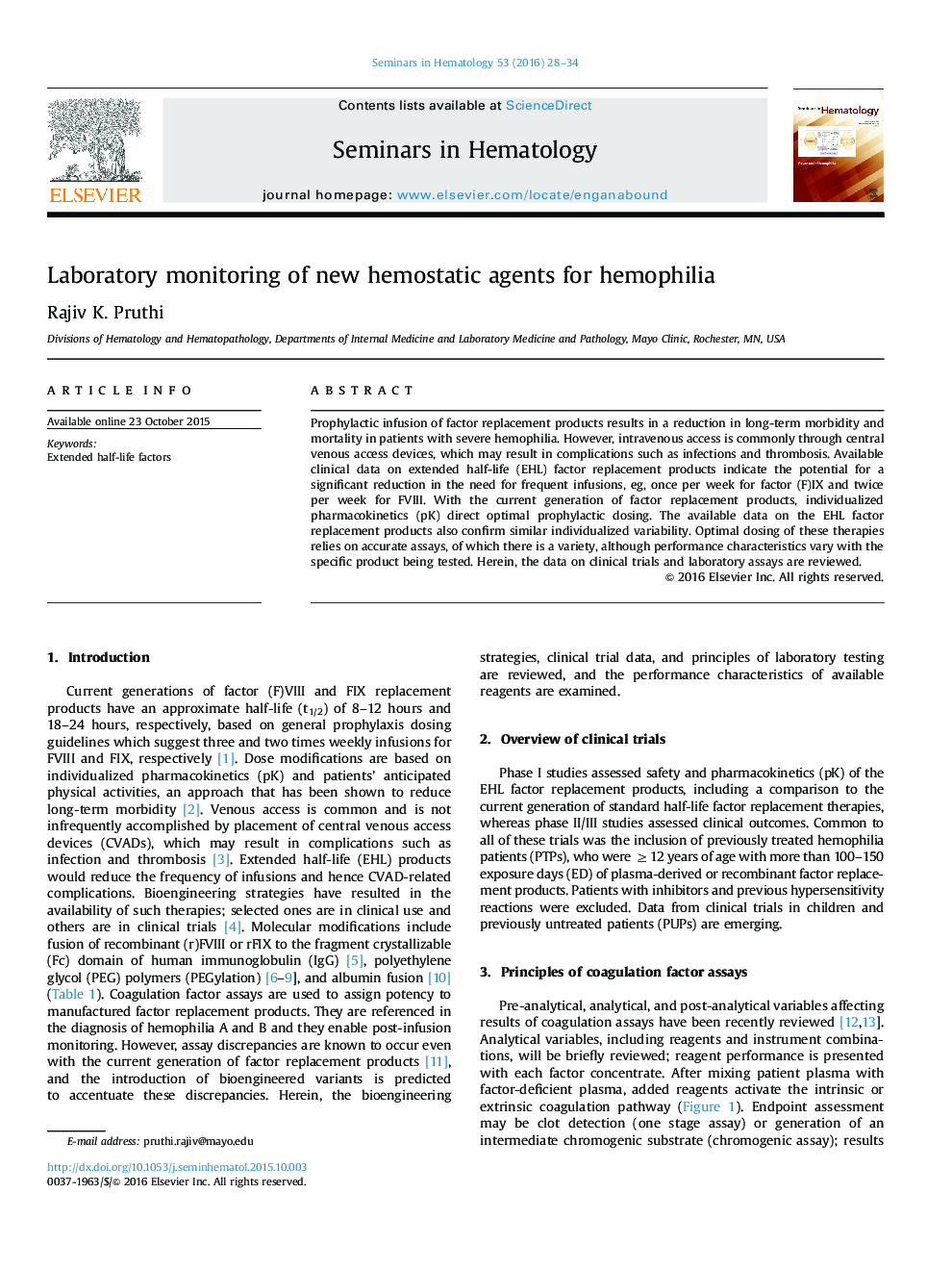| Article ID | Journal | Published Year | Pages | File Type |
|---|---|---|---|---|
| 3333442 | Seminars in Hematology | 2016 | 7 Pages |
Prophylactic infusion of factor replacement products results in a reduction in long-term morbidity and mortality in patients with severe hemophilia. However, intravenous access is commonly through central venous access devices, which may result in complications such as infections and thrombosis. Available clinical data on extended half-life (EHL) factor replacement products indicate the potential for a significant reduction in the need for frequent infusions, eg, once per week for factor (F)IX and twice per week for FVIII. With the current generation of factor replacement products, individualized pharmacokinetics (pK) direct optimal prophylactic dosing. The available data on the EHL factor replacement products also confirm similar individualized variability. Optimal dosing of these therapies relies on accurate assays, of which there is a variety, although performance characteristics vary with the specific product being tested. Herein, the data on clinical trials and laboratory assays are reviewed.
